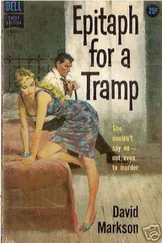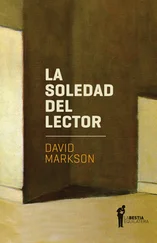Once I had found myself downstairs in the basement with no reason whatsoever for finding myself there, as I have indicated.
Had I been in a different frame of mind I might have moved the baseballs after all.
And in which instance very likely my shoulder would not feel the way it does, either.
Actually I did look through the books this time, however, which I had not done on the other occasion when I had opened the carton.
Well, the other time I had not moved the lawnmower first in any event, so that it would have been difficult to look through the books even if I had wished to.
All I had wished to do on that occasion was to discover what the carton contained, however.
Yesterday I took the books out of the carton.
With only one exception, every single one of them was in a foreign language.
Most were in German, in fact, although not all.
The one book not in German or in another foreign language was an edition of The Trojan Women, by Euripides, which had been translated from Greek into English.
By Gilbert Murray.
I believe the person who had translated it was Gilbert Murray.
As a matter of fact I am not now certain I looked.
One finds that many of the Greek plays have been translated by Gilbert Murray, however.
In fact I suspect I have even once discussed this subject.
Then again it is perhaps surprising that I did not devote more attention to the translation after all, that being the only book from the carton that I would have been able to read one word of.
Although actually I can read Spanish, too.
Or perhaps I should say I was once able to read Spanish, not having tried to do so for years.
And to tell the truth I never read Spanish very well when I did read it.
Two of the books from the carton were in Spanish.
One of these was a translation of The Way of All Flesh.
In fact I did have a certain amount of difficulty in recognizing that one, come to think about it.
Basically, this was because the word carne was used in the title, and for some moments I kept thinking of carne as meaning meat.
Certainly The Way of All Meat did not seem like the sort of title that anybody would give to a book.
The difficulty persisted only until I noticed that the book had been written by Samuel Butler, however.
Naturally one would sincerely doubt that anybody one believed had already written one book called The Way of All Flesh would have then written another book called The Way of All Meat
Or that the reverse of that statement would have been very likely true, either.
Still, I must admit that the confusion did briefly exist.
The other book in Spanish was not a translation, but had been written in that language. This was a volume of poems by Sor Juana Inés de la Cruz.
Well, Sor Juana Inés de la Cruz being still another person I suspect I have mentioned.
My reason for suspecting this is that Sor Juana Inés de la Cruz was Mexican, and I am quite positive I have spoken of having once lived in Mexico.
Living in Mexico one would naturally have become familiar with the names of certain Mexican poets, even if one did not read the language they wrote in very well.
If one does not read a language very well, one generally reads poetry in that language even less well than that, as a matter of fact.
Although I do believe I once did make an effort to read certain poems by Marco Antonio Montes de Oca, even if the chief reason I did so may have only been because of how taken I was with his name.
Certainly it has a memorable resonance, when one says it out loud.
Marco Antonio Montes de Oca.
Mountains of Goose being what the second half of it would curiously appear to mean, on the other hand.
Although Sor Juana Inés de la Cruz certainly has a resonance of its own.
Sor Juana Inés de la Cruz. Sister Juana Inés of the Cross being the translation here, obviously.
The sister part also making her a nun, of course. Even if I had not thought of the other connection until this very instant.
Which is to say the connection between Sor Juana Inés of the Cross and St. John of the Cross.
Well, possibly there is a connection. Then again, possibly all sorts of people who had something to do with the Catholic Church were called of the Cross, and it is no more than a coincidence that I have suddenly been thinking about two of them.
Doubtless if I were more interested in such matters I would have been thinking about any number of them.
For that matter I have no idea what I have been saying that has now made me think about Artemisia Gentileschi again, either.
Even if as I said a few pages ago I was surprised that I could have written as many pages as I already had without having thought about her long before that.
Well, Artemisia perhaps being the one person who, if one could have been positive of a life after death, almost any woman artist would have happily hanged herself to see.
Even if nobody had ever even taught her to read or write.
Or were the paintings themselves perhaps enough, if one was Artemisia?
That was a ridiculous question to have asked.
Still, it is perhaps an indication of how one feels about Artemisia Gentileschi.
Of the Brush.
Although for the life of me I now additionally have no idea why I have just remembered that Galileo was one more person who went blind.
In Galileo's case this would have been from looking at the sun too many times through his telescopes, or so it was said.
But so how in heaven's name has this in turn reminded me of that cracked old oblong of plate glass that I used to use as a pallet, all of those years ago in SoHo, and which before that had been the top of my aunt Esther's coffee table?
Or that they actually named a disease after one of those baseball players?
One would certainly give almost anything to understand how one's head sometimes manages to jump about the way it does.
Esther was from my father's side of the family, actually.
I have just made some souchong tea.
Before I came back to the typewriter I went upstairs and took the framed snapshot out of the drawer in the table beside my bed, for just a moment.
I did not put it back on the table itself, however.
There was no book by Marco Antonio Montes de Oca in the carton either, if I happen to have given that impression.
On the other hand there were no less than seven books by Martin Heidegger.
I have no way of indicating the titles of any of these, of course, short of returning to the basement and copying out the German, which it would certainly seem pointless to trouble myself with.
When I say it would seem pointless, naturally what I mean is that I would still not understand one word of the German in any event.
A word that certainly did catch my attention was the word Dasein, however, since it seemed to appear on practically every page I opened to.
Martin Heidegger himself remaining somebody I know no more about than I know about Sor Juana Inés de la Cruz, on the other hand.
Except for now knowing that he was certainly partial to the word Dasein, obviously.
Then again as I believe I have said one is frequently apt to come upon a name such as Martin Heidegger's in one's reading, even if one is scarcely apt to be reading any books by Martin Heidegger himself.
At least this would presumably remain the case if one happened to ever do any reading, which as I have also said I have stopped doing.
In fact I cannot remember the last book I read, even if it may on occasion have appeared to have been a life of Brahms.
All things considered I still do not believe it has ever been verified that I did read a life of Brahms, however.
Читать дальше












